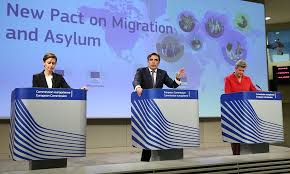The Big Changes Coming to UK and European Travel in 2025
Significant changes are on the horizon for international
travel to the UK and Europe in 2025, as both regions move towards streamlined,
digitized entry systems. Millions of travelers from non-European nations will
need to complete new online authorization processes, marking a major shift in
how visitors prepare for their trips.
UK Introduces the Electronic Travel Authorization (ETA)
Starting 8 January 2025, the UK will require visitors from
countries like the US, Canada, and Australia, who currently do not need visas
for short stays, to apply for an Electronic Travel Authorizations (ETA). The
process involves submitting an online form, paying a £10 fee, and waiting up to
three days for approval. Each ETA is valid for multiple entries of up to six
months within a two-year period or until the passport expires, whichever comes
first.
EU nationals will also be included in this system beginning
2 April 2025, except for citizens of Ireland and those with valid UK visas. The
Home Office states the ETA aims to simplify entry by confirming eligibility
before departure. Airlines will link the authorization to travelers'
passports, speeding up border checks and enhancing security through the
collection of biometric and contact information.
“This expansion of ETA is a significant step forward in
delivering a border that's efficient and fit for the digital age,” said Seema
Malhotra, UK Minister for Migration and Citizenship.
The EU's New Entry Systems
The European Union will launch its own travel authorisation
system, the European Travel Information and Authorisation System (ETIAS), in
spring 2025. Travellers from 60 visa-exempt countries, including the UK, will
need to apply online, pay a €7 fee, and wait up to 96 hours for approval before
entering 30 EU countries.
Additionally, the EU plans to implement the Entry/Exit
System (EES), using facial recognition and fingerprint scans to replace
traditional passport checks for non-EU nationals. While no prior application is
needed, the EES will record and monitor border crossings in real time, reducing
wait times and boosting security.
Concerns and Sentiments
While these measures promise efficiency and security,
critics argue they may deter younger or less affluent travelers due to added
costs and processes. Others lament the loss of passport stamps, once cherished
keepsakes of international adventures.
The digitization trend highlights the need for resilient
systems to handle potential technological glitches. As travel evolves, these
changes underscore the balance between convenience, security, and preserving
the charm of traditional experiences.








